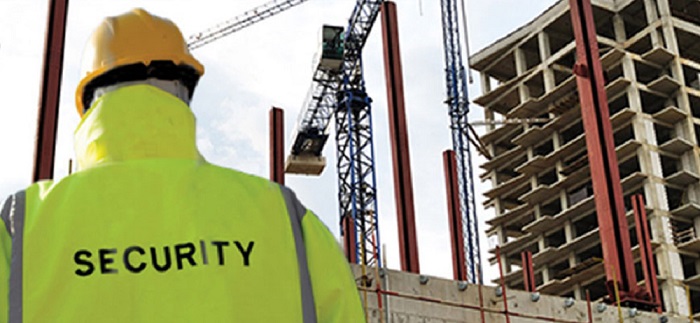Construction sites are usually abuzz with action—machines rumble, workers shift in sync, and materials are in constant transit. But outside of these outward activities is an unseen yet important presence: the Construction Site Security Officer. They patrol, monitor, report, and guard.
In this article, we will discuss in detail how these professionals patrol construction sites, why their methods are so effective, and how their presence contributes a great deal of value to site safety. If you are a project manager, a site owner, or simply interested, this guide will provide you with a complete idea about their patrolling methods.
Why Construction Sites Need Regular Patrols
Vulnerability to Theft and Vandalism
Building sites have highly valuable tools, machinery, and raw materials. Copper cables, powerful machinery—anything can attract thieves and burglars. Undirected sites pose as an invitation for unwanted traffic, especially at night or during festive events.
Unauthorised Access and Trespassing
With open access points and no fences in some locations, construction sites are open to intruders. Untrained persons who venture into restricted sections can be injured, creating legal and financial headaches for businesses.
Fire and Accident Risks
In addition to theft, fires caused by bad wiring or accidents due to inadequate equipment storage are serious hazards. Regular patrols enable early detection of such hazards, allowing timely action.
Role of a Construction Site Security Officer in Patrolling
A Construction Site Security Officer is not merely a person who wanders around the premises. Patrolling is all about strategy, vigilant watching, regular checks, and detailed reporting. Their patrol processes are proactive and reactive, and aim at discouraging danger and reacting immediately to problems.
Patrol Schedule and Timing
Day vs Night Patrolling
- Day Patrols: Emphasis on checking incoming and outgoing traffic, confirming delivery schedules, and checking safety compliance.
- Night Patrols: These are important since most construction sites are left empty at night. Officers check that all gates are secured, lights are on, and no unauthorised individual is around.
Randomised Routes
To avoid predictability, Building Site Security Guards usually change their patrol routes and timings. This randomness serves as an effective deterrent to possible intruders.
Key Areas Security Officers Patrol
Access Points
Security officers regularly check that gates, doors, and vehicle entrance points are secure. Officers also look out for signs of tampering.
Storage Units
These units typically have valuable tools and equipment. A Construction Site Security Officer verifies locks and records incoming and outgoing movement.
Fuel and Hazardous Material Zones
Particular care is taken for chemical storage and fuel tanks. Open containers, unauthorised entry, or any leakage are promptly reported.
Temporary Structures and Offices
These structures, ranging from rest stops to contractor offices, are included in the regular inspection. Officers double-check that all windows and doors are closed and confirm there are no suspicious indicators.
How Security Officers Conduct Patrols
Using Checklists
Officers usually have a checklist to ensure nothing is missed. This may involve checking locks, lighting, equipment, and alarm systems.
Logging Each Patrol
Every patrol is documented in a log—paper or electronic—listing the time, length, areas patrolled, and any problems observed.
Reporting Irregularities
Anything out of the ordinary—a malfunctioning lock, an open gate, unknown vehicles—is noted and reported to the site manager or control room.
Coordination with Other Safety Measures
Although patrols are essential, they function well when supplemented with other construction site security measures:
- CCTV Monitoring: Remote surveillance officers collaborate with on-site officers to watch blind spots.
- Alarm Systems: Security forces respond rapidly to activated alarms and determine the reason.
- Access Control: Officers check IDS and delivery records, allowing only approved personnel to access the site.
Benefits of Effective Patrolling
Deterrence
An unarmed and mobile security presence makes it much less probable that intruders will try theft or vandalism.
Rapid Response
In the event of an occurrence, patrolling officers can react fast, minimising the level of damage or loss.
How Companies Implement Construction Site Patrols
Site Assessment
Security companies start with a risk assessment to identify vulnerable areas and areas in need of patrol.
Patrol Planning
A patrol schedule is designed based on site size and level of risk. It sets frequency, method (foot or vehicle), and high-priority areas.
Officer Deployment
A team of Building Site Security Guards is deployed based on the plan.
Real-Life Example: Dynamic Security Solutions
One good example of effective patrol implementation is by Dynamic Security Solutions. Their team of trained security officers normally patrols big construction projects all over the UK. This involves using some mobile patrols, static posts, and speedy response units. They base their success on accurate planning, effective communication, and customised security.
Construction Security Services UK: Why Professional Help Matters
Security companies specialising in construction security services in the UK recognise the special challenges of the industry. Such companies provide:
- Trained and screened officers
- 24/7 response and support
- Employment of advanced security technology
- Patrol planning flexibility
Having professionals on the job means your site is guarded not only by presence but also by effective strategy.
Common Challenges Faced During Patrols
Harsh Weather Conditions
Severe cold or heat can impede patrolling, particularly on open premises. Suitable uniforms and frequent rests ensure maintenance of performance.
Unpredictable Threats
Trespassers may at times be hostile or drunk. Police officers are trained to remain composed and request backup when necessary.
Equipment Malfunction
Light source failures or communication failures can complicate patrolling. Frequent equipment inspections are essential to ensure efficiency.
Tips for Enhancing Patrol Efficiency
- Provide distinct noticeboards to denote prohibitions.
- Have emergency contact numbers readily available.
- Organise frequent training for officers.
Conclusion
A Construction Site Security Officer has a critical function in protecting the site and property. By a combination of effective patrols, utilisation of contemporary technology, and open reporting, they keep out theft, accidents, and unauthorised personnel.
By complementing other security measures, their patrolling operations provide a safe and uneventful construction process from beginning to end. Whether a minor refurbishment or a large-scale development project, having trained officers actively patrolling your site is an investment in continuity of operation and peace of mind.
If you are organising a project or you are already working on a construction site, don’t forget how crucial good patrolling is. It may be the very action that will protect you from enormous losses and project delays.


